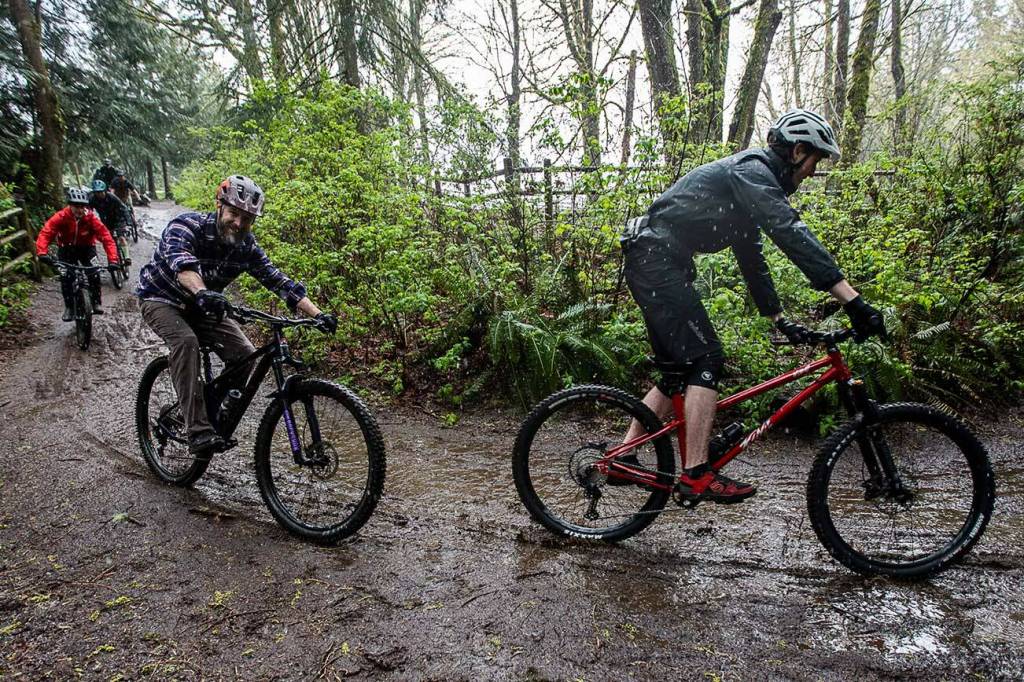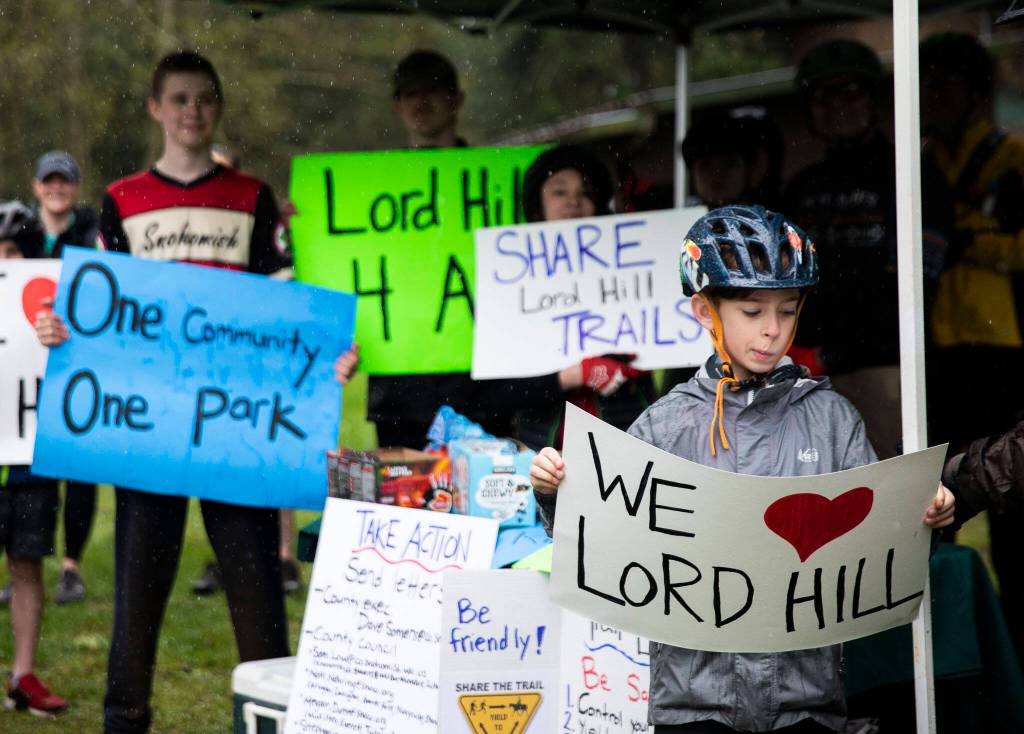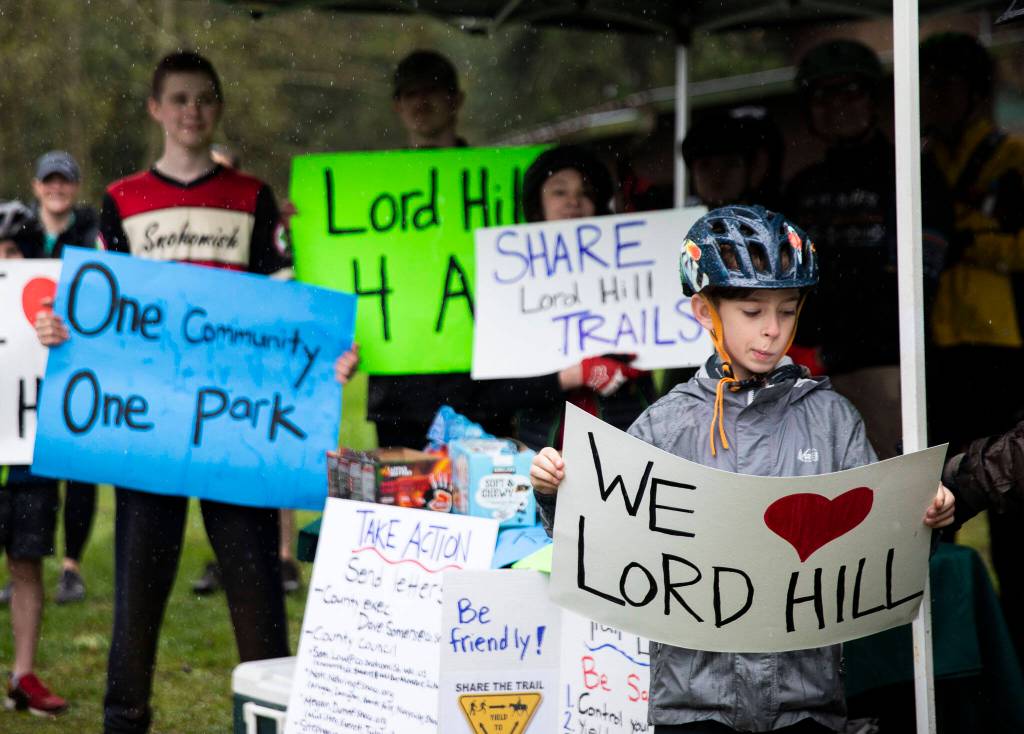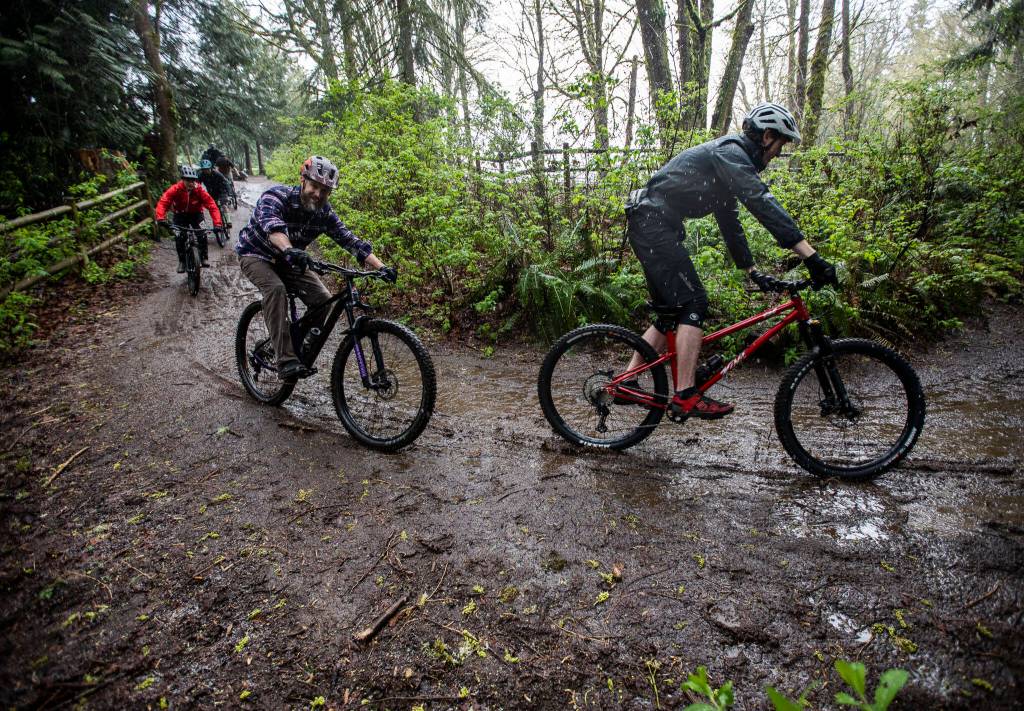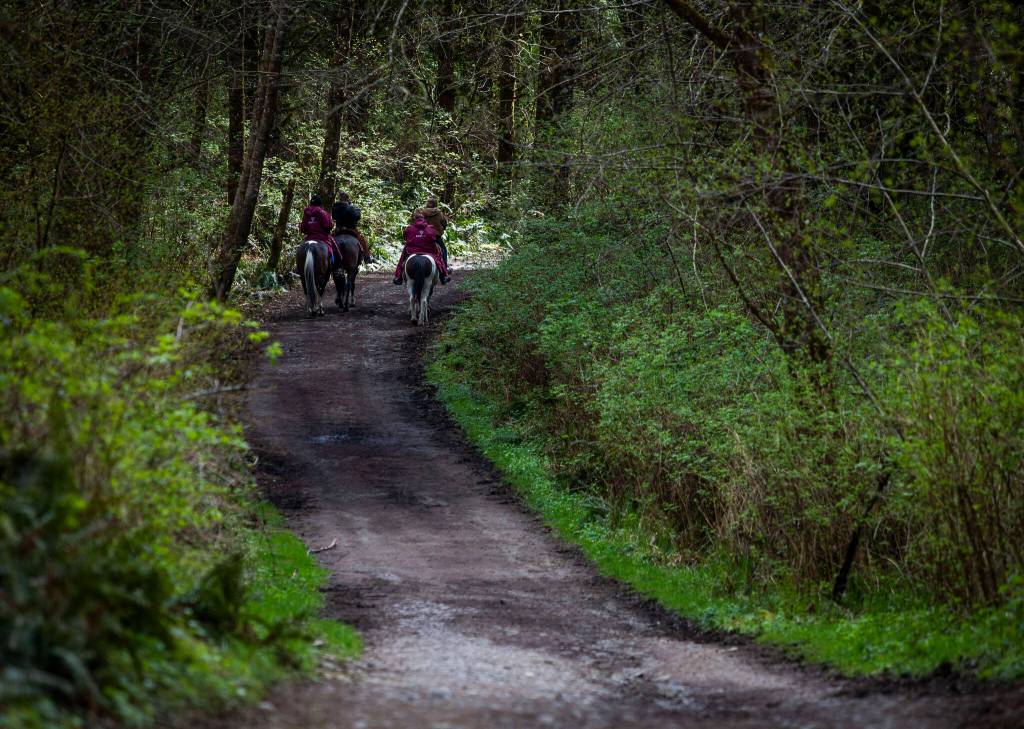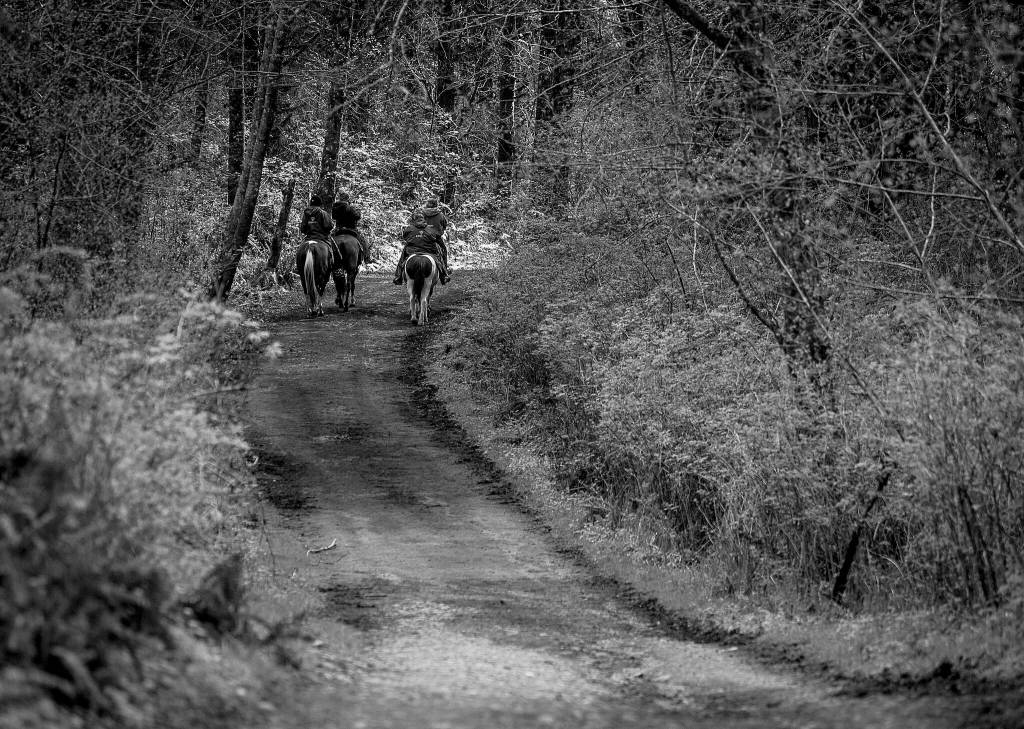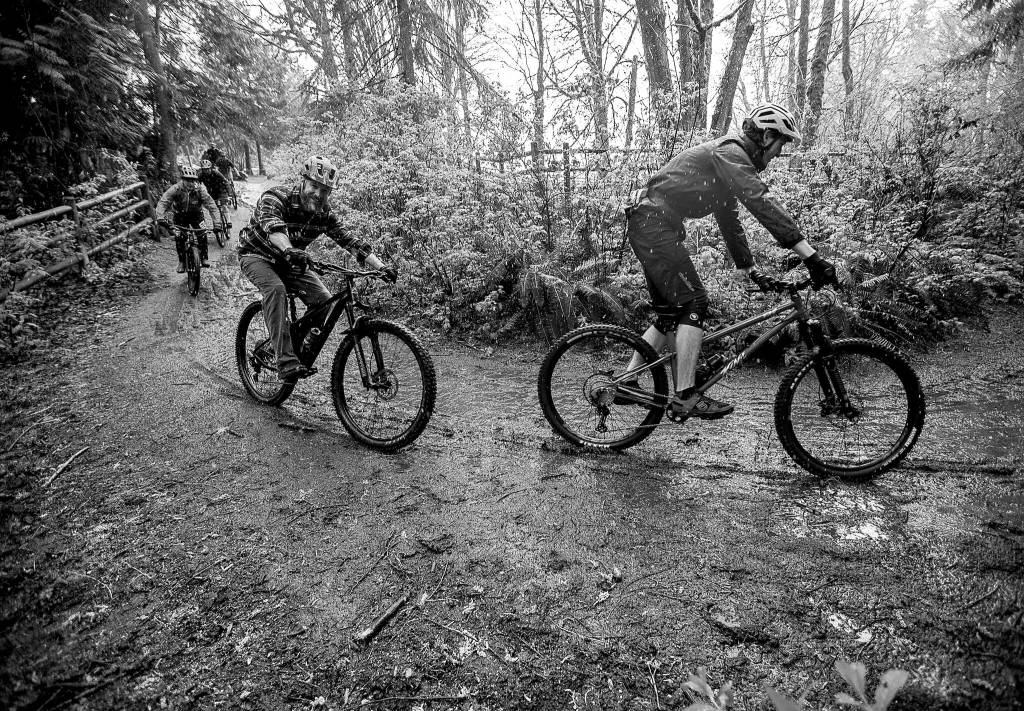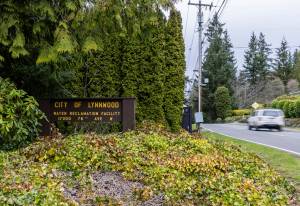Bikes, horses, hikers: At Lord Hill Park, who gets priority?
Published 1:30 am Sunday, April 17, 2022







SNOHOMISH — As the county prepares for the future of Lord Hill Park, the hikers and the horse riders and the mountain bikers still can’t agree on everything.
It has been six years since planning began, with many hours-long public meetings and hundreds and hundreds of comments. People are tired of talking.
There is an end in sight, as the county readies to unveil a final plan this summer for the park a few miles south of Snohomish. But not everyone’s happy. The mountain bikers, specifically, are frustrated.
They say they feel unheard, sometimes attacked. Snohomish resident Jordan La Croix, who lives by the park, said the latest updates amount to “an implicit ban” of the sport.
At a public meeting last month, parks staff announced changes to the draft plan. No longer will there be dedicated bike paths, as was proposed back in November. Instead, all trails will be shared with hikers, who make up 80% of park-goers.
Additionally, berms and jumps and drop-offs may be removed. And an idea to expand parking is apparently nixed.
Staff will also review current and proposed trails, particularly those in or near critical habitats, for any environmental impacts. Unauthorized trails could be decommissioned.
No one is getting kicked out, parks staff assured. But the way people can use Lord Hill will change. For cyclists, it’ll probably be a slower roll.
“The wheels on the ground,” said Jeremy Husby, county parks and recreation director. “That’s where we need to go.”
There’ll be some opportunity to go downhill, “but you need to behave when you go downhill, because you’re going to be sharing the trail with other people,” he said.
Some people at the meeting were happy with the changes, citing safety and environmental concerns over cyclists going too fast. A few also feared if left unchecked, mountain bikers would scare off other users, and take over the park.
The “preferred plan,” as it’s called, will be unveiled this summer. It will shape the future of Lord Hill, a 1,400-acre-plus park that a 1983 report once called “an island of wilderness imbedded in the urban fabric of Snohomish County.”
Today, that description is more true than ever. Since the ’80s, the population in the county has more than doubled, to over 800,000 people. And in the next couple of decades, a few hundred thousand more people could be moving here, according to recent growth targets.
Still, Lord Hill remains. Compared to the Cascades, it’s little more than a bump in the land, a volcanic formation that rises 656 feet above sea level. But in the flatness of the Snohomish River valley, it stands out. A satellite view shows the park as an oasis of trees surrounded by fields and development. It’s home to a vast array of birds, according to a 2017 survey “blitz” by the Pilchuck Audubon Society, that found 61 species in a single day. The place is ripe with habitat that allow waterfowl, woodpeckers and birds of prey to thrive.
The park has seen many uses over the past century. People have farmed and logged and excavated stone here. They’ve hunted and fished. And today they hike, run, mountain bike, ride horses and go birding.
Over time, the park has become a sprawling network of trails, as various user groups etch out tracks, sometimes with the county’s blessing, sometimes not. It has become a “Wild West,” La Croix said. People go where they please, and there has been little enforcement of what the trails should look like.
At last, the county wants to rein things in.
“I think what I have to own, having been the parks director for 15 years, is we failed a little bit in our land management approach,” said Tom Teigen, director of Snohomish County Conservation and Natural Resources, which oversees the parks division. “We have to be more active — we have to be active listeners, and we have to be active doers. We have to be on site more. And so that’s what we’re committing to, also.”
‘But we’re in control’
Conflict over the future of Lord Hill has taken place at public forums, on the internet, in the pages of this newspaper and occasionally on the trails.
Mountain bikers are at the center of the debate.
The sport has skyrocketed at Lord Hill in just the past decade, said Peter Sherrill, of the Evergreen Mountain Bike Alliance.
And it’s evolved over time. Bikers these days prefer more dynamic courses, he said.
So trails at Lord Hill have changed, too, as bikers build more exciting and fun features.
To take those features away, as is being proposed, is akin to taking away mountain biking, they claim.
But others oppose this new strain of the sport, arguing park leaders should slow things down. At meetings and in comments, some park goers worried about how fast bikers were going, especially through blind intersections, saying the current “black diamond” courses don’t belong. While The Daily Herald could find no evidence of any reported biker-hiker-horse collisions, or any resulting injuries, people fear the possibility.
One letter to the editor talked about a new “radical fringe” of mountain bikers at Lord Hill and accused them of harassing horse riders, specifically women who ride alone or in small groups, “with the obvious goal of scaring them out of the park.”
“A horse that is startled can ‘spook’ and throw its rider, causing serious injury to the rider,” the letter writer warned.
The letter drew a rebuttal from a group of mountain bikers, calling the remarks “inflammatory, filled with gross exaggerations and outright lies.”
One video sent to park rangers shows a confrontation between horse riders and two men on mountain bikes in the equestrian parking lot. It starts with a woman telling them that the lot is only for horse trailers. The men hurl expletives in return.
Rich Patton, the county’s chief ranger, reviewed the video.
“There’s no crime here,” he said, though he noted the men didn’t use PG language.
Most complaints are after-the-fact, Patton said. At that point, there’s not much rangers can do unless there’s an obvious crime. And there’s not enough staff to patrol Lord Hill consistently to break up an argument.
“The rangers can’t be everywhere at one time,” Patton said.
One group of mountain bikers told The Herald they’ve also been on the receiving end of harassment and hoped the actions of a few people didn’t speak for everyone.
They don’t view themselves as doing anything particularly extreme at Lord Hill, and they say they’re not going fast at all — 6 to 8 mph, tops. They also noted there aren’t any features they’d consider black diamond. Intermediate, at best.
Jenny Buckley, who lives in Snohomish, wondered if the fear came from a lack of knowledge of the sport.
“I’m sure if somebody who’s never seen someone mountain bike before, it might look like we’re going fast,” she said, “but we’re in control.”
To them, Lord Hill is a casual course, good for beginners and those seeking a gentler jaunt. Classes of young mountain bikers will take off their training wheels here. Perhaps they’ll make air for the first time.
Despite the relative lack of elevation change, experienced riders are fond of Lord Hill. It’s a diverse environment, with a mix of smooth and chunky trails, La Croix said. He enjoys the rocky and rooty segments. And if a rider times it just right, as the sun lowers on the horizon, light flickers through the trees “like a light switch,” he said.
Even on sunny weekends, when the parking lot is overflowing, Lord Hill is so expansive you can find moments of solitude and quiet, accompanied only by the chatter of birds, and the sound of your own feet or wheels or hoofs. It’s possible to find a spot by yourself by tranquil Temple Pond, or up high at Rock Candy Viewpoint, overlooking the Snohomish River valley.
‘It’s not working’
After the pandemic caused a hiatus, talks about Lord Hill’s future were revived last fall, bringing a new round of public input, with new staff at the helm, and a new process called a “preferred plan.”
The preferred plan, unlike a master plan, doesn’t go through the County Council. Rather, decision-making lies with the staff. It gives the parks department more autonomy — and more power to make a final choice, despite any naysayers.
The Pilchuck Audubon Society had initially opposed the process, reasoning it was best if people could lobby their council members. At the same time, the group’s former director, Kristin Kelly, noted it does speed up things, and possibly lets the department address issues faster. Kelly has been on Lord Hill’s stakeholders committee since 2017.
“Everything is a double-edged sword with land use,” she said.
Time is running out to act, Husby said. Grant deadlines to spend money for the preferred plan are coming up soon. And concerns over safety, much of which have been documented, have become pressing, he said.
At last month’s meeting, he said the parks department will be starting trail work in popular mountain bike areas immediately, separate from the planning process. Part of the Third Eye trail will be re-routed to avoid a blind intersection with Rock Candy Bypass. And elsewhere, the Divingboard drop feature will be decomissioned.
Husby said he felt a need for the county to take back control of the park.
“What has become evident, especially over the past six years, is it’s not working as it should be, and it will not work as use in the park continues to grow,” he said.
That’s because the park has developed organically over the years, with “very little delineation” of what uses were appropriate on which trails, said Emily Griffith, senior parks planner. The trails were built piecemeal and were never designed to operate cohesively, she said. And in the past few years alone, she said, the impacts of increased use has resulted in wear and tear.
“While it is a large park, Lord Hill can’t be all things to all people,” Griffith said, “and we had to get realistic with ourselves that it cannot accommodate every desired use, and other parks and spaces may be more suited.”
Husby believes the preferred plan, once complete, will fix many of the current issues and conflicts. He calls it a “holistic vision.” He emphasized that the plan is “not a punishment” for certain user groups.
He said Lord Hill alone can’t meet the growing demand for mountain biking, and made a promise to find cyclists a new place to recreate, possibly at an existing park or on another piece of county-owned property. Or if need be, the county will find new land to acquire.
Talking to The Herald, Husby floated the idea of some undeveloped property the county owns next to Flowing Lake park. Some mountain bikers balked at that location. There’s not enough elevation change, no interesting terrain, they argued.
Teigen, from the county, said he recognized mountain bikers have been overlooked in recent years, even as the sport booms. He said county leaders are united in the effort to find them a dedicated place to ride.
“Outdoor recreation is a $22 billion industry in our state,” he said. “We know that is is an economic driver, and it is an important part of who we are in our county.”
After the meeting, mountain bikers said they were frustrated.
“We felt like we didn’t get any input,” Buckley said, “And then we felt like we weren’t heard at the meeting, either, because we’re asking questions, and questions weren’t being answered.”
“We’re talking about a small amount of mileage, that is really important to the bikers because we don’t have a lot of other places to ride in Snohomish County,” she said.
More than 30 mountain bikers gathered for a community ride at the park last Sunday — a protest, of sorts, though they were hesitant to use that word. They held signs saying “Share Lord Hill Trails” and “One Community One Park.” Some of them had already ridden that morning, as evidenced by their mud-splattered shins.
Then, they all hopped on their bikes and disappeared into the woods. Heavy rain turned to hail, pummeling them as they rode.
Zachariah Bryan: 425-339-3431; zbryan@heraldnet.com. Twitter: @zachariahtb.

